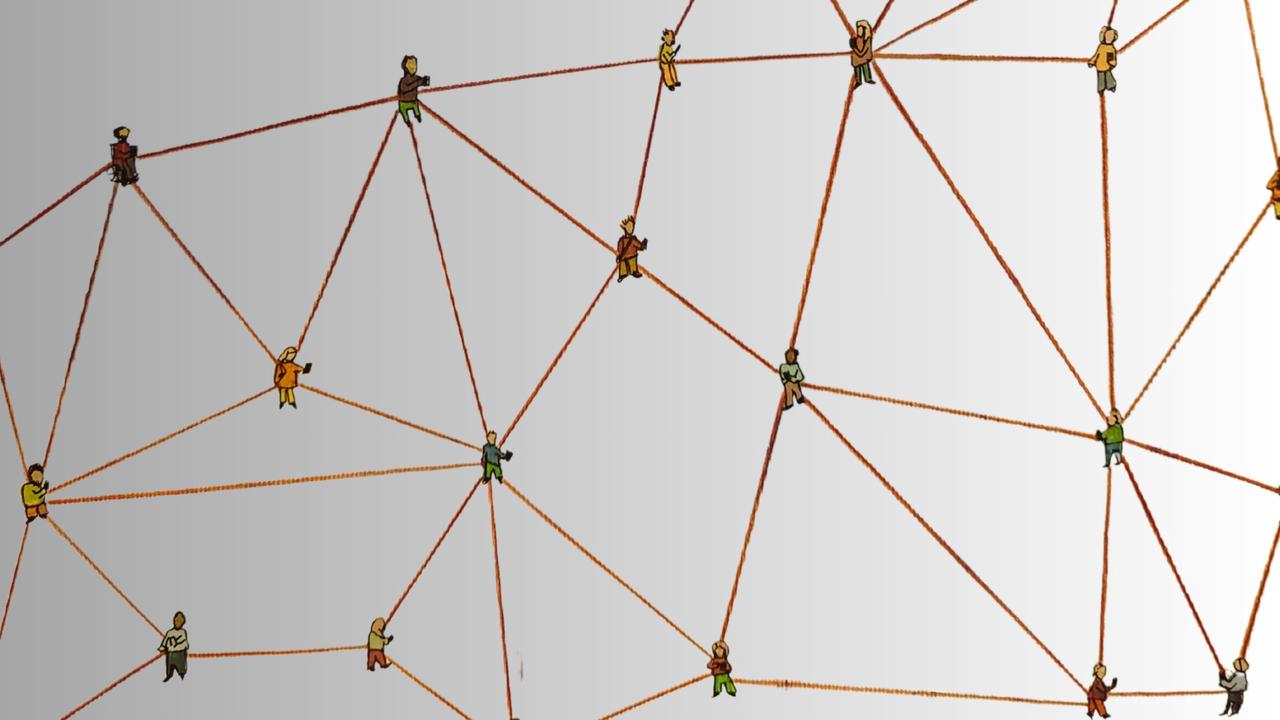
ΑΙhub.org
Agent Teaming in Mixed-Motive Situations – an AAAI Fall symposium
 Image by Jamillah Knowles & Reset.Tech Australia / © https://au.reset.tech/ / Better Images of AI / Detail from Connected People / Licenced by CC-BY 4.0
Image by Jamillah Knowles & Reset.Tech Australia / © https://au.reset.tech/ / Better Images of AI / Detail from Connected People / Licenced by CC-BY 4.0
The AAAI Symposium on Agent Teaming in Mixed-Motive Situations, held from October 25-27, 2023, showcased the challenges and innovations in multi-agent interactions with varying goals and decision-making processes. The event featured experts from diverse backgrounds, including multi-agent systems, AI, and organizational behavior. Key highlights include:
- Professor Subbarao Khambhampati’s (Arizona State University) keynote discussed the dual nature of mental modeling in cooperation and competition. The importance of obfuscatory behavior, controlled observability planning, and the use of explanations for model reconciliation was emphasized, particularly regarding trust-building in human-robot interactions.
- Professor Gita Sukthankar’s (University of Central Florida) talk focused on challenges in teamwork, using a case study on software engineering teams. Innovative techniques for distinguishing effective teams from ineffective ones were explored, setting the stage for discussions on the complexities of mixed-motive scenarios.
- Dr Marc Steinberg (Office of Naval Research) moderated an interactive discussion exploring research challenges in mixed-motive teams, including modeling humans, experimental setups, and measuring and assessing mixed-motive situations. This discussion provided diverse perspectives on the evolving landscape of agent teaming.
- Accepted papers covered a wide range of topics, including maximum entropy reinforcement learning, multi-agent path finding, Bayesian inverse planning for communication scenarios, hybrid navigation acceptability, and safety. Talks also delved into challenges in human-robot teams and the importance of aligning robot values with human preferences.
- Panel sessions explored themes such as team structure, collaboration within diverse teams, the role of game theory, and explicit and implicit communication within teams. Meta-level parameters for multi-agent collaboration and the importance of context in human-agent communication in mixed-motive settings were discussed.
- Breakout group discussions focused on consensus and negotiation in mixed-motive groups, considering intragroup and intergroup dynamics. The impact of consensus on trust and future work in mixed-motive teaming, including interdisciplinary collaborations and resource identification, were explored.
- The symposium successfully brought together a community actively addressing challenges in agent teaming within mixed-motive situations. The discussions highlighted the complexities of collaboration, trust-building, and decision-making in diverse multi-agent scenarios. Ongoing research and continued collaboration were emphasized to advance understanding in this field.
Useful links
- Agent Teaming in Mixed-Motive Situations – symposium page.
- AAAI Fall Symposium 2023 – central webpage with links to all symposia.
- Assured and Trustworthy Human-centered AI – an AAAI Fall symposium – summary from the organisers.
tags: AAAI, AAAI Fall Symposium 2023

Suresh Kumaar Jayaraman
is a postdoctoral researcher at the Robotics Institute at Carnegie Mellon University.

Suresh Kumaar Jayaraman
is a postdoctoral researcher at the Robotics Institute at Carnegie Mellon University.
Related posts :
Interview with Kate Larson: Talking multi-agent systems and collective decision-making
Liliane-Caroline Demers
27 Jan 2026
AIhub ambassador Liliane-Caroline Demers caught up with Kate Larson at IJCAI 2025 to find out more about her research.
#AAAI2026 social media round up: part 1
Lucy Smith
23 Jan 2026
Find out what participants have been getting up to during the first few of days at the conference
Congratulations to the #AAAI2026 outstanding paper award winners
Lucy Smith
22 Jan 2026
Find out who has won these prestigious awards at AAAI this year.
3 Questions: How AI could optimize the power grid
MIT News
21 Jan 2026
While the growing energy demands of AI are worrying, some techniques can also help make power grids cleaner and more efficient.
Interview with Xiang Fang: Multi-modal learning and embodied intelligence
Lucy Smith
20 Jan 2026
In the first of our new series of interviews featuring the AAAI Doctoral Consortium participants, we hear from Xiang Fang.
An introduction to science communication at #AAAI2026
Lucy Smith
19 Jan 2026
Find out more about our session on Wednesday 21 January.
Interview with Anindya Das Antar: Evaluating effectiveness of moderation guardrails in aligning LLM outputs
Lucy Smith
16 Jan 2026
Find out more about work presented at AIES 2025.
Guarding Europe’s hidden lifelines: how AI could protect subsea infrastructure
Horizon
15 Jan 2026
EU-funded researchers are developing AI-powered surveillance tools to protect the vast network of subsea cables and pipelines that keep the continent’s energy and data flowing.








